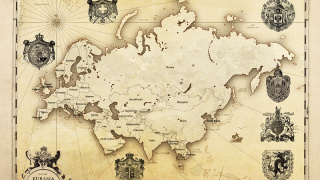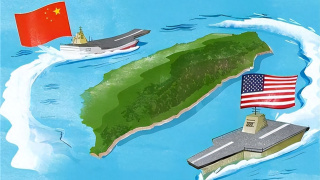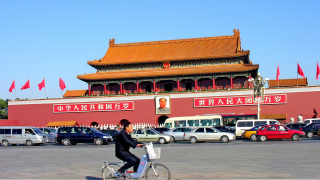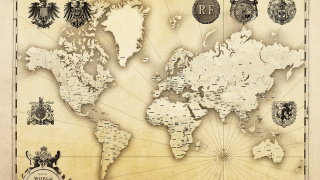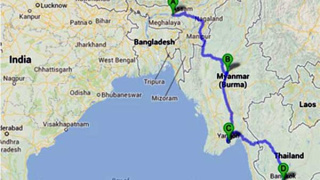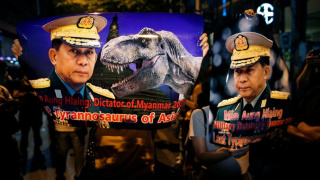Black-yellow continent: China conquers Africa by investments
Chinese businessmen did in Africa what the Western colonialists and Soviet enlighteners were unable to do
Trade as an argument
At the very beginning of September 2018, President Xi Jinping of the China-Africa Cooperation Forum in Beijing said that in the coming years he would provide the countries of the Black Continent with $ 60 billion, mainly in the form of investments, loans and gratuitous aid. Speaking in plain language, the PRC loudly declared through the lips of its chairman: "We came to Africa seriously and for a long time, and the whole world will have to accept this".
For the first time, the Chinese were seen on the coast of Africa about 600 years ago, when Admiral Zheng Hee with his "gold fleet" landed in the area of modern Somalia and Kenya. However, then the greetings and primitive trade did not go further. Later on the Chinese people were seriously heard at the beginning of the 20th century, when about 60 thousand miners from the Middle Kingdom arrived for gold mines in South Africa.
In the middle of the twentieth century, Mao Zedong sent tens of thousands of workers and peasants "to strengthen ties with countries that have overthrown the oppression of colonialism."
But the real expansion of China into Africa began in the late 1990s, when the dynamic development of China's industry demanded in large quantities absolutely all the resources that can be extracted from the bowels and which were not or almost not available in China itself: oil, copper, iron, platinum ...
In exchange, the Chinese supplied goods: from stationery and clothing to cars and computers.
Since then, China has become nothing less than the main trading partner of the Black Continent: if in 1999 the trade turnover between the PRC and African countries was only $ 6 billion, in 2009 this figure reached $ 100 billion, and in 2015 - 188 billion.
«Builders of the century»
On average China-Africa trade grew by almost 20% per year, and direct investment by 40%. At the same time, as the well-known consulting agency McKinsey writes, the official figures are about 15% lower than real ones.
Even more interesting is the fact that the real number of Chinese companies operating in Africa is several times more than the number of official companies. So, according to McKinsey, in Cote d'Ivoire, with 30 officially operating Chinese enterprises, in reality there are over 270 functioning, in Nigeria instead of 317 - 920 ... This list can be continued.
The total number of Chinese companies in Africa as of the end of 2017 exceeded 10,000 and continued to grow. At the same time, the number of employed Africans is measured in millions, and the vast majority of Chinese companies operating on the Black Continent are private and profitable for both China and the local economy.
The Chinese have penetrated almost all sectors of this economy: infrastructure, mining, agriculture, services, etc. In a number of areas, such as construction, the share of Chinese companies reaches 50% of the total volume of all construction contracts concluded by African states with foreigners.
Among the largest construction projects of recent years is the opening of a railway connection between the capital of Kenya, Nairobi and the second most important city of the country, the Mombasa port, over 450 km long, and the construction of a railway between the Ethiopian capital Addis Ababa and the Djibouti port in the neighboring state of the same name. In both cases, financing fell on the shoulders of Chinese banks (with the participation of the state), and construction contracts were performed by Chinese contractors.
Formation of the image
It is clear that China purposefully "binds" to itself the African continent, which the latter, by and large, is happy: the Chinese do not just mindlessly pump out resources, but also develop infrastructure, bring technology, give jobs to the local population, build schools, hospitals, training centers .
According to the survey of the independent research company Afrobarometer, 63% of respondents from 36 African countries believe that China has a positive impact on the African continent, and the economic model of China is the second after the American one.
The penetration of China into Africa can be seen not only in the economy: according to the University of Michigan (USA), in 2014 there were significantly more students from Africa studying in China than in the USA or Great Britain (even though English, unlike Chinese, is predominant in the 22 countries of the continent). The reason is the numerous grants that Beijing provides to foreign students, and often understandable employment prospects for joint or Chinese enterprises.
Revolution in Bahamoyo
Beijing's plans for the near future are to continue to develop infrastructure projects. One of the most important is the project to create a $ 10 billion mega port in the small fishing village of Bagamoyo, in Tanzania, in eastern Africa. According to the plans of the PRC, the new port will become the largest on the continent and an important link of the "Silk Road" from China to Europe.
Also, the Chinese plan to deepen the bay so that huge ships can easily moor in the new port, build a special economic zone, a residential complex of at least 75,000 people, and finally, the opening of the airport. It is noteworthy that the local fishermen for the most part have already agreed to compensation from the PRC "for the inconvenience" and are optimistic about the start of construction work, anticipating the new opportunities and benefits that the Chinese civilization is carrying.
Opening the summit in Beijing, Xi Jinping noted that Chinese investments in Africa are not related to the political commitments of African countries. Indeed, unlike the Europeans or the USSR, who actively pursued their political line in Africa, the Chinese are equally successful in working with both democracies and autocracies: "Let a hundred flowers grow." The only condition is loyalty to the Middle Kingdom (it is no secret that the countries supporting the PRC at the UN General Assembly receive more investment and financial assistance from Beijing).
China has already become the main country of the continent and forms its own world in it - the way the Chinese see it.


